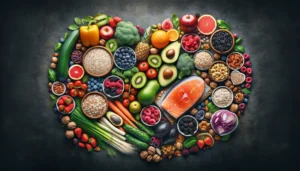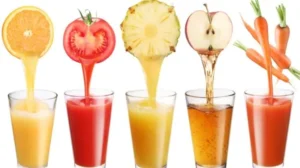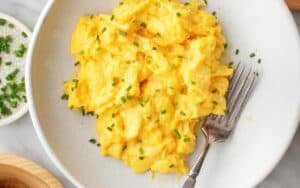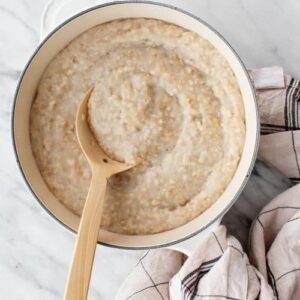Snacking often gets a bad reputation, especially when it’s associated with mindless munching of sweets, biscuits crisps and chocolate. However, when chosen wisely, snacks can play an essential role in maintaining energy levels, promoting better digestion, and even supporting weight management. As a dietitian, it’s important to provide balanced insights into the pros and cons of snacking, as well as practical examples of healthy, high-protein, high-fiber snacks that are both nutritious and satisfying—without sending your nutrition balance wayward.
The Benefits of Snacking
- Helps Control Hunger and Prevents Overeating Snacking can prevent extreme hunger between meals, which often leads to overeating during the next meal, and eating too fast (thus gut issues!) Consuming smaller, balanced snacks throughout the day can help regulate your appetite and keep cravings in check, especially if you’re trying to maintain your weight or gut function.
- Boosts Energy Levels Healthy snacks can provide a quick energy boost when you’re feeling sluggish, especially if your previous meals were low in protein or fibre. Opting for snacks rich in these nutrients can provide sustained energy throughout the day and support optimal physical and mental performance.
- Maintains Blood Sugar Levels For individuals with diabetes, pre-diabetes, PCOS or those looking to stabilize their blood sugar, snacks that include a balance of protein, fibre, and healthy fats are a great way to prevent blood sugar spikes or drops. Including fibre/ fat/ protein-rich foods can slow digestion, helping to maintain consistent energy levels.
- Supports Metabolism? Snacking was once thought to help keep your metabolism humming along. That’s not true! However, eating at least 20g of protein can stimulate your muscles to grow and replair, and more muscle can lead to a greater metabolism. That said, eating lots of protein morning and night would do the same thing, if you had the appetite (and time!).
- Nutrient Boost Snacks are an excellent opportunity to introduce more fruits, vegetables, and other nutrient-dense foods into your diet. They offer a chance to get in extra vitamins, minerals, and antioxidants that support overall health.
The Drawbacks of Snacking
- Excess Calories One of the main pitfalls of snacking is consuming too many calories, especially if snacks are high in sugars, salt, less healthy fats, or ’empty calories’. While some snacks can be nutritious, they also can be less nutritious and the choice is something you’ve to make every time you eat. Some people fair better with just 3-4 meals as they don’t like to think about food all day.
- Mindless Snacking Sometimes snacking becomes a habit rather than a mindful choice, particularly when it’s driven by boredom, stress, or emotional triggers. This can lead to overeating and choosing less nutritious options. It’s essential to snack with intention which is easier to do when you’re prepared and when you start the day with a protein and fibre rich breakfast.
- Poor Snack Choices Not all snacks are created equal. Many processed snacks are high in unhealthy fats, sugar, and salt, offering little nutritional benefit (although context does matter). Choosing snacks that lack protein or fiber can leave you feeling hungry soon after, potentially leading to a cycle of constant snacking which wouldn’t be great for your teeth.
- Digestive Issues Snacking too frequently or eating large amounts of food between meals can sometimes overwhelm the digestive system, leading to discomfort such as bloating or indigestion. It’s important to focus on snacks that promote healthy digestion, such as those high in fibre, to support gut health (although if you have gut issues your dietitian may tailor this advice to you).
High-Protein, High-Fiber Snacks Under 250 Calories
Choosing the right snacks is crucial for achieving the benefits while avoiding the drawbacks. Here are some examples of high-protein, high-fibre snacks that are satisfying and nutritious, while keeping your calorie count in check:
- Greek Yogurt with Berries
- Calories: ~150-200 calories (depending on portion size)
- Protein: 10-15g
- Fiber: 3-4g Greek yogurt is rich in protein, while berries (like raspberries, blackberries, or blueberries) add fiber and antioxidants. This combination helps keep you full and provides a satisfying sweet treat. This is good if you’ve high blood pressure too.
- Hard-Boiled Eggs with Baby Carrots
- Calories: ~200 calories (2 hard-boiled eggs and cherry tomatoes)
- Protein: 12g
- Fiber: 3g Hard-boiled/ scrambled (or omelette) eggs are an excellent source of high-quality protein, and tomatoes provide fibre, lycopene (good for male fertility) as well as essential vitamins. This snack is simple and easy to prepare for a quick pick-me-up.
- Apple Slices with Almond Butter
- Calories: ~220 calories (1 medium apple and 1 tablespoon of almond butter)
- Protein: 4g
- Fiber: 5g Apples are rich in fibre, and almond butter provides healthy fats and protein. Together, they make for a delicious snack that keeps you feeling full.
- Chia Pudding
- Calories: ~200-230 calories (made with 1 tablespoon chia seeds and unsweetened almond milk)
- Protein: 6g
- Fiber: 10g Chia seeds are an excellent source of both protein and fibre not to mention plant omega 3 called ALA wheich is good for heart health. You can make chia pudding by soaking the seeds in almond milk or another non-dairy milk, then adding some vanilla extract or a touch of honey for flavour.
- Edamame with Sea Salt
- Calories: ~180 calories (1/2 cup edamame)
- Protein: 17g
- Fiber: 8g Edamame is packed with plant-based protein and fibre. Simply steam the beans and sprinkle with a little sea salt for a delicious and filling snack. They tend to bloat less than other beans, and can lower cholesterol. Use herbs to flavour rather than salt if you have high blood pressure!
- Hummus with Veggies
- Calories: ~200 calories (3 tablespoons hummus with 1 cup mixed veggies like cucumbers, carrots, peppers, and celery)
- Protein: 6g
- Fiber: 5g Hummus is a great source of plant-based protein, and paired with crunchy vegetables, it provides fibre that promotes fullness and digestive health. Peppers give you your daily vitamin C needs.
- Cottage Cheese with Flaxseeds
- Calories: ~200-230 calories (small bowl of cottage cheese and 1 tablespoon ground flaxseeds)
- Protein: 14g
- Fiber: 6g Cottage cheese is an excellent source of protein, and when paired with flaxseeds, it provides additional fibre and omega-3 fatty acids (aALA) and they lower cholesterol!
Conclusion
Snacking can be a healthy and beneficial part of your diet when approached mindfully. By choosing snacks that are rich in protein, fibre, and other essential nutrients, you can enjoy improved energy, better appetite control, and enhanced digestion—without exceeding your energy needs (calorie targets/ calorie goals). On the other hand, it’s essential to avoid mindless snacking and make smart choices to prevent overconsumption of less healthy snacks that provide little nutritional value.
If you’re looking for satisfying snack ideas that keep you full and fuel your day, the above options are an excellent place to start. Remember, balance and moderation are key when it comes to snacking! Oh, and check out my recipes!











